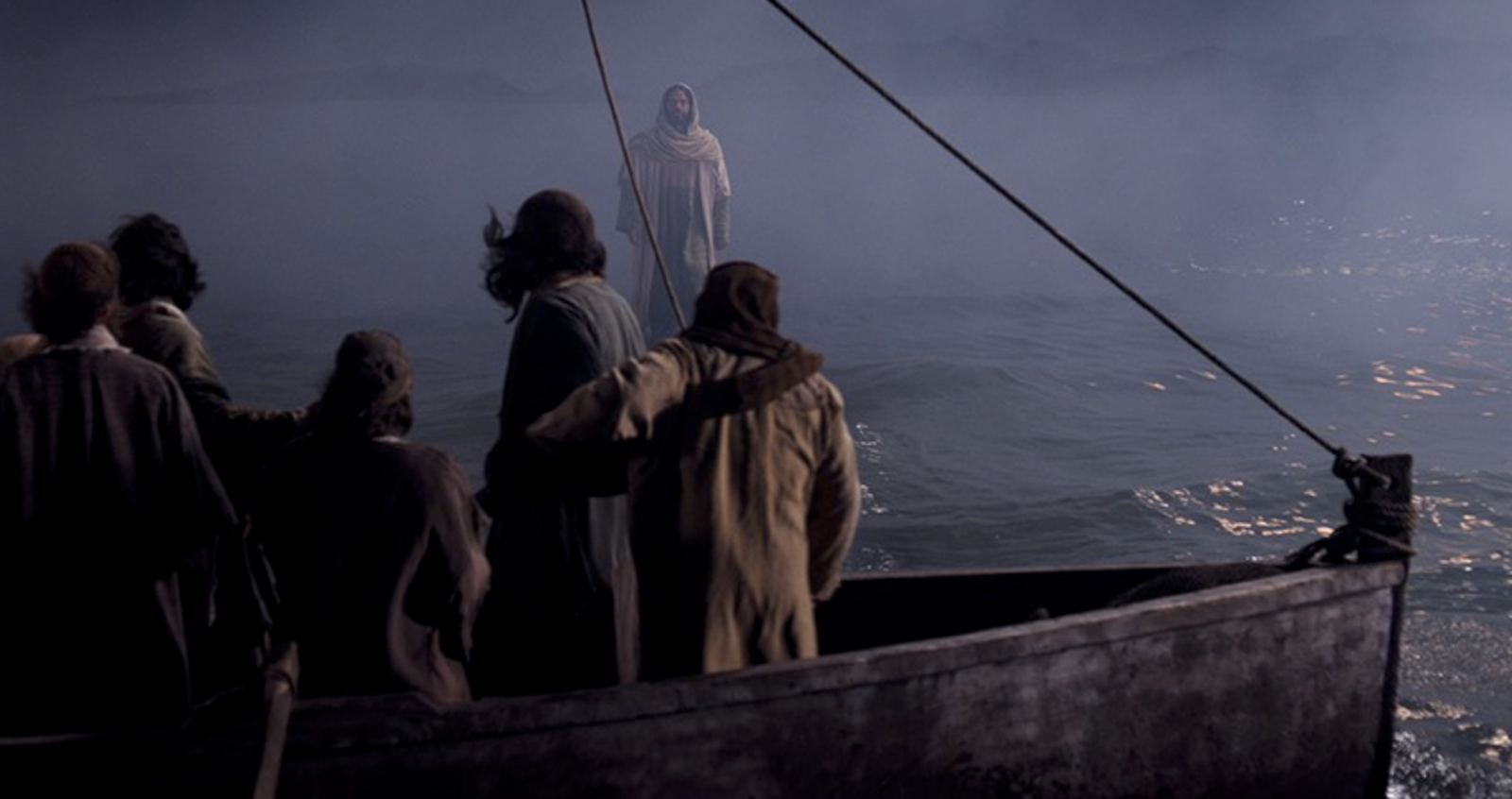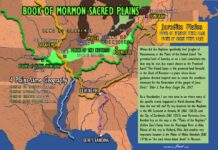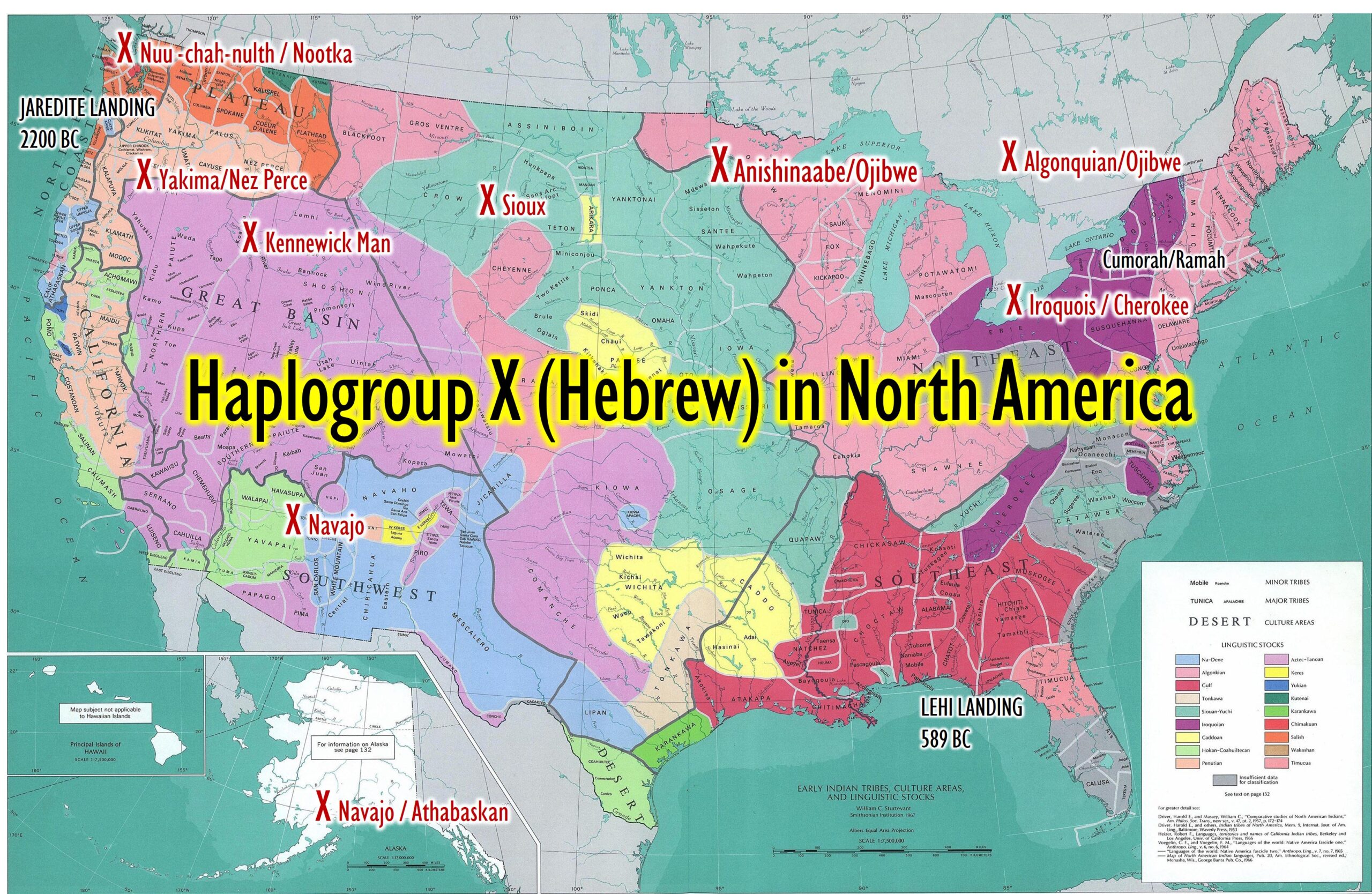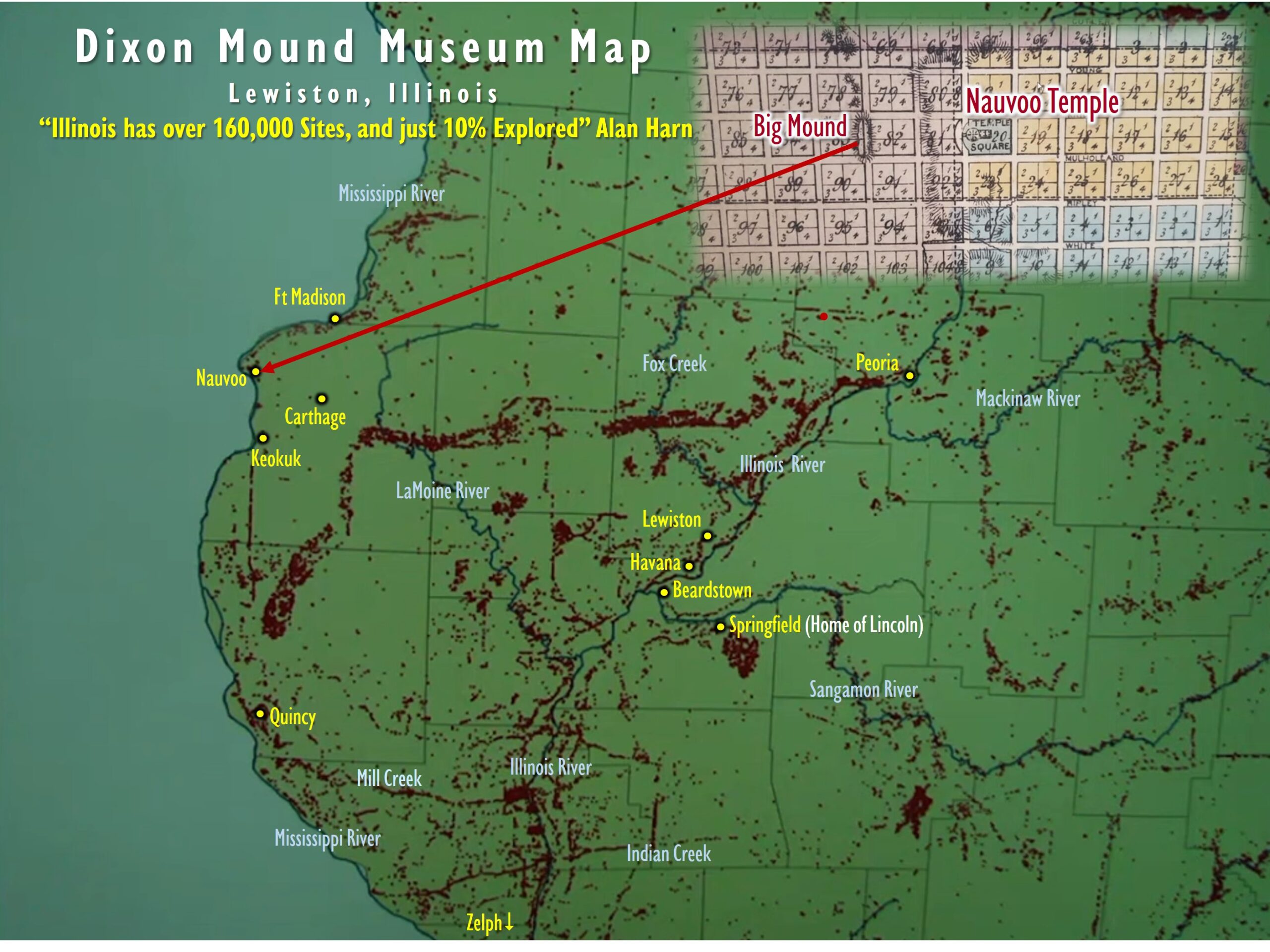Destroyer upon the Waters
In the scriptures in Section 61 there is a warning concerning the waters that seems to me that focus specifically on the Missouri River (“these waters”). Many of the water routes to Zion and even more generally all water routes may be more challenging than traveling by land. It is not clear from Section 61 if these verses curse all waters, including lakes and ponds or even in that matter a bathtub or a swimming pool. There is much “Mormon lore” out there.
In section 61 it seems to me more of a general warning, as the saints were not treating each other very good at all while in that canoe, and so I am sure the spirit of contention being near made it easy for William Phelps and Joseph to see the destroyer on the waters as that is where their contention was happening.
“The connection between missionary policy and the reference to the “destroyer” riding the face of the waters in D&C 61 is a persistent Mormon urban legend. One must consider that LDS missionaries frequently travel by water to reach remote islands. Before the advent of modern air travel, all overseas missionaries were required to travel by ship to Europe, Asia, and other foreign lands. Missionaries, of course, bathe and perform baptisms in water.
The Church has a general policy prohibiting full-time missionaries from swimming. This is simply a safety precaution to prevent drowning or other water related accidents. There are a number of other mission rules that vary depending upon the mission. For example, some missions prohibit missionaries from playing basketball. Rock climbing is usually a prohibited activity. Mission rules are designed to keep missionaries safe by preventing them from participating in high-risk physical activities.” Source
The Lord Has Blessed the Land and Cursed the Waters
“Section 61, The Lord Has Blessed the Land and Cursed the Waters,” Doctrine and Covenants Student Manual (2002), 131–32

Historical Background
This revelation was received by the Prophet Joseph Smith on the bank of the Missouri River, McIlwaine’s Bend, on 12 August 1831. The Prophet wrote:
“On the 9th, in company with ten Elders, I left Independence landing for Kirtland. We started down the river in canoes, and went the first day as far as Fort Osage, where we had an excellent wild turkey for supper. Nothing very important occurred till the third day, when many of the dangers so common upon the western waters, manifested themselves; and after we had encamped upon the bank of the river, at McIlwaine’s Bend, Brother Phelps, in open vision by daylight, saw the destroyer in his most horrible power, ride upon the face of the waters; others heard the noise, but saw not the vision. “The next morning after prayer, I received the following: [D&C 61].” (History of the Church, 1:202–3.)
D&C 61:1–4, 6, 19.
The Brethren Were to Bear Record
The Lord commanded the elders to bear record of Satan and his power upon the waters (see D&C 61:4, 19), and of the power of God for the benefit of the faithful (see vv. 1, 6). To fulfill this responsibility, it would be necessary for them to come in contact with people, hence, the Lord’s reminder that while traveling by canoe they were not able to meet people who needed to hear the gospel message (see vv. 3–5, 20–22, 30–32).
Information Here Tickets Here
D&C 61:5–19. How Is the Water “Cursed”?
President Joseph Fielding Smith pointed out how “in the beginning the Lord blessed the waters and cursed the land, but in these last days this was reversed, the land was to be blessed and the waters to be cursed. A little reflection will bear witness to the truth of this declaration.
 In the early millenniums of this earth’s history, men did not understand the composition of the soils, and how they needed building up when crops were taken from them. The facilities at the command of the people were primitive and limited, acreage under cultivation was limited, famines were prevalent and the luxuries which we have today were not obtainable.
In the early millenniums of this earth’s history, men did not understand the composition of the soils, and how they needed building up when crops were taken from them. The facilities at the command of the people were primitive and limited, acreage under cultivation was limited, famines were prevalent and the luxuries which we have today were not obtainable.
Someone may rise up and say that the soil in those days was just as productive as now, and this may be the case. It is not a matter of dispute, but the manner of cultivation did not lend itself to the abundant production which we are receiving today. It matters not what the causes were, in those early days of world history there could not be the production, nor the varieties of fruits coming from the earth, and the Lord can very properly speak of this as a curse, or the lack of blessing, upon the land. In those early periods we have every reason to believe that the torrents, floods, and the dangers upon the waters were not as great as they are today, and by no means as great as what the Lord has promised us.
The early mariners among the ancients traversed the seas as they knew them in that day in comparative safety. … Today this manner of travel in such boats would be of the most dangerous and risky nature. Moreover, we have seen the dangers upon the waters increase until the hearts of men failed them and only the brave, and those who were compelled to travel the seas, ventured out upon them.
 In regard to the Missouri-Mississippi waters, we have seen year by year great destruction upon them, and coming from them. Millions upon millions of dollars, almost annually are lost by this great stream overflowing its banks. Many have lost their lives in these floods as they sweep over the land, and even upon this apparently tranquil or sluggish stream there can arise storms that bring destruction. Verily the word of the Lord has been, and is being, fulfilled in relation to those waters. While the Lord has spoken of the sea heaving itself beyond its bounds, and the waves roaring, yet we must include the great destruction upon the waters by means of war, and especially by submarine warfare as we have learned of it in recent years.” (Church History and Modern Revelation, 1:224; see also Genesis 3:17–19; Ether 7:23–25; 9:16, 28; Revelation 16:1–6; Alma 45:16; D&C 59:3; 16–19.)
In regard to the Missouri-Mississippi waters, we have seen year by year great destruction upon them, and coming from them. Millions upon millions of dollars, almost annually are lost by this great stream overflowing its banks. Many have lost their lives in these floods as they sweep over the land, and even upon this apparently tranquil or sluggish stream there can arise storms that bring destruction. Verily the word of the Lord has been, and is being, fulfilled in relation to those waters. While the Lord has spoken of the sea heaving itself beyond its bounds, and the waves roaring, yet we must include the great destruction upon the waters by means of war, and especially by submarine warfare as we have learned of it in recent years.” (Church History and Modern Revelation, 1:224; see also Genesis 3:17–19; Ether 7:23–25; 9:16, 28; Revelation 16:1–6; Alma 45:16; D&C 59:3; 16–19.)
The Lord Controls the Waters, not Satan
“The interpretation history of section 61 is a good example of what happens when scripture is not read in context and when it is too quickly applied universally instead of limited to the situation it was originally about. It does not say that Satan controls the water.
 The Missouri River was well known to be dangerous, “ever-varying,” and full of submerged trees that could capsize or sink a steamboat, not to mention a canoe.1 Joseph and the elders launched their canoes at the Missouri River landing just north of Independence, Missouri, and headed home to Ohio. They camped at Fort Osage and “had an excellent wild turkey for supper.” The good food did little to keep the men satisfied under the stressful conditions.
The Missouri River was well known to be dangerous, “ever-varying,” and full of submerged trees that could capsize or sink a steamboat, not to mention a canoe.1 Joseph and the elders launched their canoes at the Missouri River landing just north of Independence, Missouri, and headed home to Ohio. They camped at Fort Osage and “had an excellent wild turkey for supper.” The good food did little to keep the men satisfied under the stressful conditions.
During their second day on the river, “a spirit of animosity and discord” infected the group. “The conduct of the Elders became very displeasing to Oliver Cowdery.” He prophesied, “As the Lord God liveth, if you do not behave better, some accident will befall you.” 2 At some point William Phelps “saw the Destroyer, in his most horrible power, ride upon the face of the waters, ”though what that means is uncertain and ought not to be interpreted to mean that Satan controls the waters without more revelation.3
Contention continued the next day. Joseph got frustrated. Some of the elders refused to paddle, and at least one of the canoes hit a submerged tree and nearly capsized. Joseph urged the frightened group to get off the river. Some of the men called him a coward. They landed on the north side of the river at McIlwaine’s Bend (now Miami), set up camp as best they could, and convened a council to address the contention. Some of the elders were critical of Oliver’s rebuke. Some criticized Joseph for being “quite dictatorial.” Joseph got defensive and the council went on for some hours until, early in the morning, everyone reconciled.4
Speaking of section 61, Joseph’s history says, “The next morning after prayer, I received the following.” 5. John Whitmer described the revelation as a “commandment given Aug 12th 1831 on the Bank of the River Destruction (or Missorie) unfolding some mysteries.”6
In section 61, the omnipotent Lord commands the elders gathered on the banks of the Missouri River to hear and obey him. He forgives their sins. He mercifully forgives the sins of all who humbly confess them. He says they don’t all need to travel quickly down the river while settlers on either side need to be taught the gospel. The Lord explains that he let the elders experience the river’s terrors so they could testify of the danger to others.
The Lord has angrily decreed that water will be a destructive element, especially the Missouri River. But he holds mankind in his hands and will preserve the faithful among this group of elders from drowning. The Lord has kept the group together this long so they can be corrected and purified from their sins, become unified, and thus escape the punishment for their wickedness. Now it’s time to split up, and the Lord gives specific assignments and instructs Sidney Gilbert, the bishop’s assistant, to give them enough money to fulfill their assignments.
Close reading of section 61 shows that the Lord controls the waters, not Satan. That is true for dry land as well. God blessed the waters during the creation process. He later cursed them (see Revelation 8:8–11). The day will come when only the honest-hearted will be able to safely travel to Zion by water. The Lord explains that after the Fall he cursed the land for Adam’s sake, but in the latter days he blessed it to be fertile for the Saints’ sake. The Lord commands the elders to warn the other Saints not to travel on the dangerous Missouri River without faith.
William Phelps carried out the commandment in this revelation to tell all the Saints about the dangers of traveling to Zion in Missouri on the Missouri River. He published the revelation in the Church’s newspaper, The Evening and the Morning Star, along with an editorial listing the most notable “risks and dangers.” First, there were frequent disasters on the river. Second, he warned, there was cholera, a devastating water borne illness “which the Lord has sent into the world, and which may, without repentance, ravage the large towns near the waters, many years, or, at least, till other judgments come.”7
Phelps also wrote a short history of his stay in Missouri, in which he told how section 61 influenced his return to Ohio: I, in company with Joseph Smith, Oliver Cowdery and others started by water for Ohio, but being cautioned in a Revelation given at, McElwain’s bend, that Missouri River was cursed, all the company save myself and brother Gilbert left the river and proceeded by land. I was assured by revelation, to be safe by land or water. 8″ Harper, Steven C.. “Section 61.” In Doctrine and Covenants Contexts, 140-142. Springville, UT: Book of Mormon Central, 2021.
Notes:
1 See “Historical Introduction” to “Revelation, 12 August 1831 [D&C 61],”p. 101, The Joseph Smith Papers, accessed September5, 2020.
2 Eber D. Howe, Mormonism Unvailed(Painesville, Ohio, 1834), 204.
4 Ezra Booth to Edward Partridge, September 20, 1831, in the Ohio Star, November 24, 1831.
7 William Phelps, “The Way of Journeying for the Saints of the Church of Christ,” The Evening and the Morning Star (December 1832): 1:52–53.






